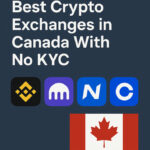In this article, I will discuss the What Is Gas Fee in Crypto. Gas fees form a small charge that one needs in order to transact and perform smart contracts in networks such as Ethereum.
They help in sustaining the functionality of the network in that they incentivize the validators of the network.
Anyone interested in cryptocurrency has to understand gas fees since they influence the cost and efficiency of transactions. For now, let’s take a look at gas fees and how they work.
What Is Gas Fee in Crypto?
Gas in cryptocurrency is a fee which is placed on a transaction or operating on a blockchain network and most specifically, on the Ethereum network. These fees are given out to the miners or validators of the network in relation to how much work they put in which was in terms of processing and validating the transactions.
In the case of Ethereum, gas fees are denoted in smaller units of gwei. The gas fee itself is highly dependent on the current network demand and the transaction intricacy level.

If a user is willing to pay a higher gas fee, their transaction can be processed faster, however, if they are paying a smaller fee, the processing time may increase.
In a nutshell, gas fees can be used to simultaneously secure and facilitate the operations in a blockchain as they motivate the stakeholders to engage in the transaction validation process.
How Do Crypto Gas Fees Work?
Blockchain networks have gas fees, which allow them to function properly. These fees are paid to validators for their role in the network by collecting and verifying transactions, thereby allowing the network to be self-sustained. They also encourage active participation by paying users for their efforts.
Gas fees vary according to the market. High fees are charged during periods when users congest the network and traffic is low, costs are lower. The transaction type also determines.
Normal transactions do not cost as much as more intricate actions like executing smart contracts or minting NFTs. By definition, more intricate activities will lead to more gas charges, hence necessitating more gas.
Most of the time, gas fees are low and usually only a few dollars when the network is active. Even after major changes such as the switch of the Ethereum network from the PoW system to the PoS system during the Merge, nothing has changed in terms of gas fees.
Previously, miners were provided with fees after using their hardware to mine ETH. Now, however, those who deposit ETH into the validator are rewarded.
How to Calculate Gas Fees
Many people find the NFT craze confusing and I can see why that might be the case. For example, when you are charged a certain dollar amount for a transaction in ETH all you see is the gwei amount it shows you and that resulting confusion. This is all due to a simple equation introduced in the London upgrade of August 2021:
Gas fee = Gas limit (units) x (fixed per-block base fee + priority fee)
A base limit of 21000 is placed as the minimum gas unit. So say you’re trying to send 0.05 if you select 70 gwei as a payment which in this case paying 60 gwei would be the base fee and 10 gwei priority fee then your equation would look like:
21,000 x (60 + 10) = 1,470,000 gwei.
This indicates 0.00147 ETH which when sent together with 0.05 results in sending 0.05147 instead.
As stated above, when the base gas price showed low the limit and priority fee would result in the charges being quite high. This shows the simple equation provided at the start being invaluable.

Due to the infrastructure of gas prices that had been created along dotted by the London upgrading every upgrade prior created fees only on gas prices.
Then making the prices extremely volatile often users had to outbid each other due to gas prices rising. And everything has been made simple and more transactional with people switching from variable to fixed base fees.
Factors That Affect Gas Fees
Just like virtually every industry, the crypto sector also has specific activities which have an associated cost – gas fees. These gas fees in the cryptocurrency realm are a product of various influences. Here are some key factors that affect gas fees:
Network Usage: When the blockchain transactions are in high demand, gas fees will usually rise because of how congested the network is. A lot of people are ready to pay a higher price during peak hours as they want their transactions pushed through faster.
How Intricate a Transaction is: Depending on the task on hand, different types of contracts will use up different amounts of gas. token transfers are usually less expensive, gas-wise, whereas smart contract interfaces are a lot more costly in gas.
The Gas Limit of a Transaction: This limits the level of gas a user is prepared to spend. An instance of this is when a user pays for an exceptionally more valuable transaction, not only can the transaction be made but it can even be done rather swiftly.
Gas Price: It is the price an ethereum user pays for every single unit of gas to perform certain actions. Note here that not setting a high gas price can lead to miners discounting your transaction if the network is operating under heavy load.
Rate of Miner Activities Finally, depending on how active the users are as miners, gas fees may further be increased or decreased. A large amount of active miners can decrease processing time and in turn lower gas fees.
Crypto franchises: The structure of gas fees can be diverse. For instance, it has been shown that due to the high demand of Ethereum, it has higher gas fees than its rivals.
Gas Fee Ceiling: Offering services that enable gas fee ceilings to be set on certain transactions is a common feature of wallets and other platforms. This makes the transactions cost more but can extend the transactions’ duration.
You can save them and lower the costs of Manava transactions by knowing these facts. Now, you know what factors to keep in consideration to minimize gas fees.
How to Decrease Your Gas Fees
Gas fees cannot completely be avoided but yes one can try to minimize them. In order to do so, there are three strategies:
Your goal should be making transactions when the network is idle, as that is when the gas fees are the cheapest. Etherscan is an example of such a resource, as it is able to show you the highs and lows and averages of the day.
If you aren’t in a hurry to get your transactions done, you can opt for a low-tier priority fee. By making such a decision, your overall gas fee should drop.
In order to lower the spent amounts, you can also adjust the fee settings in your wallet.
Development of smart contracts can be an ongoing process and their developers can outdo themselves to make them even more gas friendly.
Conclusion
To sum up, gas fees represent a key component of a blockchain and have implications for its operations and sustainable viability. They also pay the validators, reduce the impacts of over-congestion in the network, and enable efficient facilitation of transactions and the deployment of smart contracts.
Even though gas fees vary with degree of complexity, there is need to appreciate their mechanics so that one is able to operate within the blockchain system.
In the same manner, even as the blockchain technology develops, gas fees are always present in the context of non-centralized activities.









